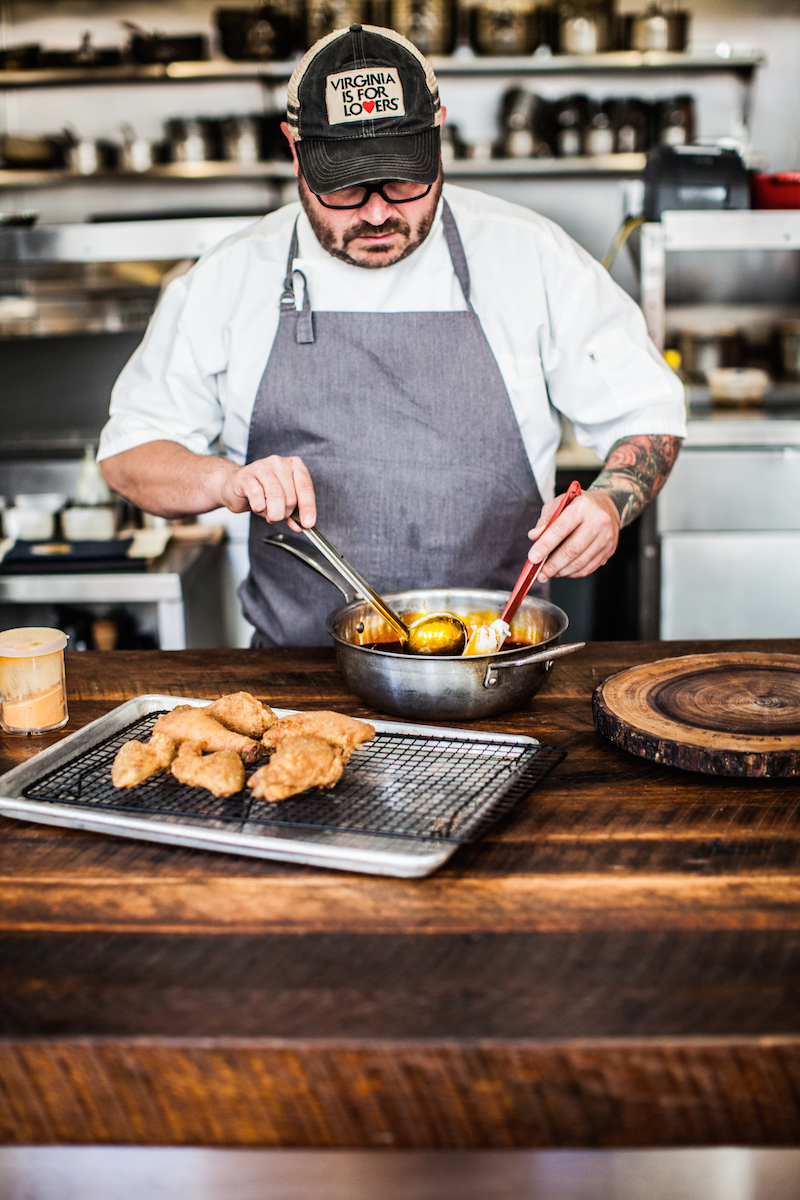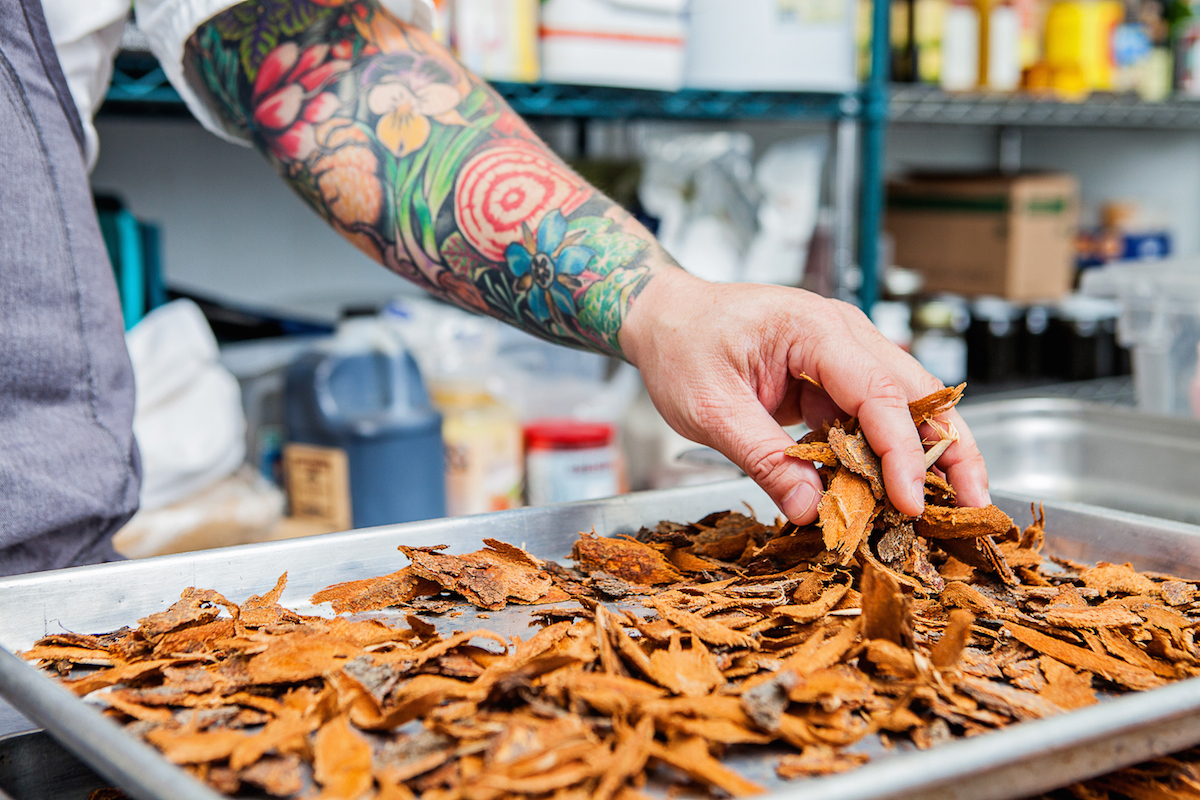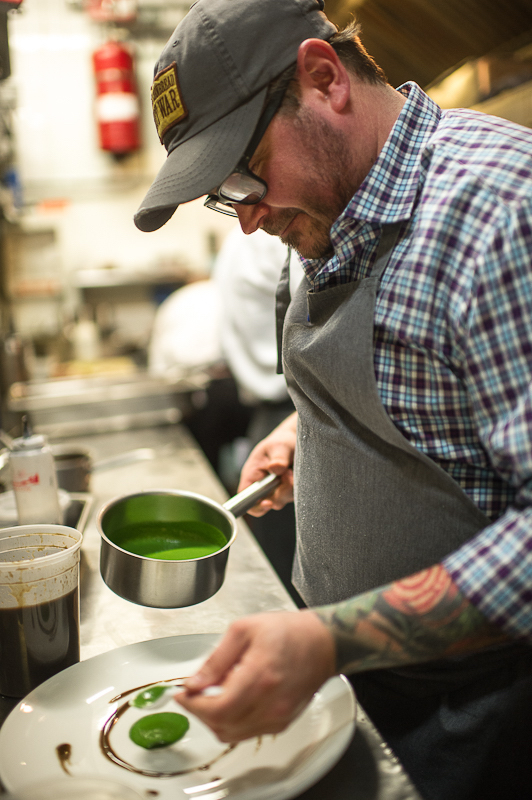Sean Brock, Taste Talks 2016 Brooklyn curator , is just as nice as he seems.
No, really.
In a world where chefs get ratings for yelling and screaming, and accolades for ramming the latest trends down diners’ eagerly awaiting throats, Brock is a calm yet forceful advocate for the last remaining chance America has at a true cuisine; despite many critics’ and cultural anthropologists’ claims to the contrary.
“At it’s core, Southern cuisine is a collection of influences from settlers, immigrants, and the original cultural influences, tied into the intricacies in each region,” he tells us from his kitchen in Charleston, fresh off announcing his award-winning restaurant Husk’s expansion to Greensville, South Carolina and Savannah, Georgia later this year and next.
When he started the original Husk in Charleston in 2010, feeding of the success of his first restaurant McCrady’s, Brock said he swore he would never expand; it was too tough to cook the way they did, sourcing native ingredients, saving seeds, changing the menu twice a day, pickling, fermenting. But five or six years down the line, things have changed. He expanded to Nashville in 2013, and the stakes are higher than when he first planted literal and figurative seeds in South Carolina. But also, Brock says, Southern food has moved away from the monocultures that permeated the south from the turn of the century up until recently, and into a new renaissance.
“Ever since the Great Depression, we stopped producing food for flavor and tradition. We were producing for production and efficiency, and we bred out flavor and deliciousness,” Brock says. “The plants and animals we were cooking have no flavor—the natural deliciousness and nutritional value of solid ag practices provide that, but if it’s not there, you have to make up for it by adding pork fat, butter, by frying, by adding dairy — that’s when southern food got a bad rap. We don’t have to do that anymore.”
 Chef Brock frying up his award-winning fried chicken in the kitchen of Husk Nashville. Photo courtesy of Sean Brock
Chef Brock frying up his award-winning fried chicken in the kitchen of Husk Nashville. Photo courtesy of Sean Brock
Brock was part of the push towards a brighter, more vibrant Southern food movement by way of the region’s past. The chef is quick to credit farmers for paving their own road back to traditional methods, but also seed savers for reviving heritage grains and vegetables—they were a big part of what’s inspired him to take his Southern food gospel to new cities, and new regions.
That’s part of why he’s heading up Brooklyn’s Taste Talks festival as curator this year. “All I try to do in my daily life is to learn as much about the South and to preach as much about the South as I can,” he says. “I’ve been blessed with an incredible platform, and it’s my responsibility to take advantage of it. Any chance I get, I jump at it. It’s an incredibly exciting time to be in the food world as a Southerner, and the more we talk about it, the more we can learn, the more opportunities we bring to a lot of people.”
He vividly recalls being in Tokyo for Cook It Raw , an annual meeting of the food world’s illuminati, along with some of the world’s most cutting-edge chefs. He was sitting at a press conference panel with Rene Redzepi and David Chang, the best of the best, when he fielded a question from a Japanese reporter that he says went something like “Why are you here? Isn’t Southern food just barbecue sauce and ketchup?”
 Sean Brock is dedicated to using the South’s natural products. Photo courtesy of Sean Brock
Sean Brock is dedicated to using the South’s natural products. Photo courtesy of Sean Brock
“Well, barbecue sauce and ketchup shot out my ears. [I was so mad] I almost lost my mind,” he says. “But I clearly have my work cut out for me. Southern food is based on agricultural practices and culture of each region, much like Europe. If you broke it off and slid it to the right, you quickly see that the Southern United States [are comparable or larger than many] influential countries in Europe. Its really not that much different, culturally.”
This conviction—that Southern cuisine belongs in the pantheon of modern cooking alongside French or Italian—is part of what motivates Brock to innovate and expand his cooking. We said he was nice; we didn’t say he was going to lay down quietly and let you trample all over the South with your simplified notions of collard greens and ketchup-laden sauces.
“If you look at this part of the timeline of the history of American foodways, what started in around 2000 and is still developing—this chunk of time is going to prove to be a major moment for Southern food, and American food as a whole,” he says. “I don’t want people to think we’re chasing the past, which people often think we are. Yes, those things matter, and you must respect them, but what’s exciting is the future, and trust me, the wheels are in motion.”

For anyone who was glued to his season of Mind of A Chef , you know that Brock is dedicated to Southern food and culture like some people are dedicated to their spouses and children. Some could say that, for the chef——who grew up in the Appalachian Mountains of Virginia and now calls Charleston home—the South *is* his family. And that family is only growing more and more as writers, critics, chefs, and eaters take a closer look.
“The reexamination of soul food happening right now is incredibly exciting to me,” Brock says. “People are realizing that it’s not what we find in traditional soul food restaurants; it’s unique to each person. [Soul food is] the idea or theory around what a food makes you feel.”
Though he lists collard greens, macaroni and cheese, and fried chicken as the first things that come to mind, he says that the comfort quintessential Southern food brings isn’t necessarily what he equates as “soul food.” For Brock, a soulful meal is six vegetable preparations, with pickles, cooked ramps, and a skillet cornbread, food his grandmother made when he was growing up in a small mountain town of less than 1,000 people. (And maybe some of his award-winning fried chicken, too.)
“People are searching for their soul food, and they’re firing up their connections to their cities, their grandmothers, and that’s going to light up cooking everywhere,” he says.
Can this same hope hold true for New York, home of Yankees and heathens who flit from one cuisine to another night to night, barely pausing to think about its origins? Yes, in Brock’s eyes, even we deserve the warmth and complexity of the Southern terroir.
“Should shrimp and grits be served in New York City? Hell yes, absolutely. Because every time that bowl of food is served anywhere in the world, that food’s story is getting told,” he says. “And you can see the difference that makes in the future of Southern food.”
Well, we’ll eat to that.
Want to hang with Sean and his crew of tastemakers in September at Taste Talks Brooklyn ? Grab your limited release early-bird tickets right here !










